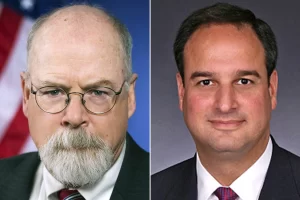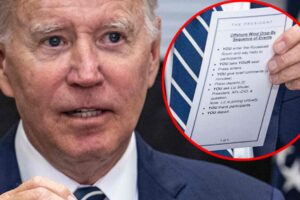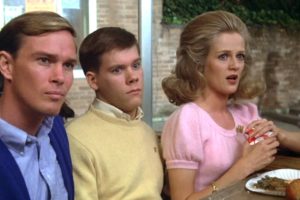I want to thank all of you who have noted my absence from these pages and have inquired about my well-being. I’m in the Free State of Florida enjoying the weather and spending time with old friends.
I have been trying to write an appropriate commentary about the unfolding disaster in Ukraine as Joe Biden sleep walks us into World War III. It’s slow going. I’m not particularly knowledgeable about international relations and military strategy. While I have strong opinions about Biden’s performance, my draft articles have been no more authoritative than the kind of drunken bloviating you could hear in any saloon near closing time. Consequently, I have hesitated to submit anything for publication.
I will keep trying, and, if I come up with anything worthwhile, you will see it here.
One of my discarded draft articles contrasted the Cuban Missile Crisis with the war in Ukraine. It went nowhere, but it did bring back some memories of my misspent youth.
In October 1962, I was a freshman at Georgetown University in Washington, D.C. Back then, Georgetown was predominantly Catholic and its College of Arts and Sciences – in which I was enrolled – was all male. Most students in the College were from New York, New Jersey and the New England states. I was from the South. There were some notable cultural and political differences between me and many of my northern classmates.
My future wife of 55 years was in her first year at Georgetown’s School of Nursing. I had already spotted her around campus, but she didn’t know or care that I – a lowly freshman – existed. We didn’t become an item until years later after she had exhausted the available supply of smooth-talking worldly upperclassmen.
I was still learning my way around campus when, speaking from the Oval Office, President John F. Kennedy announced that aerial surveillance had caught the Soviet Union positioning intermediate range ballistic missiles in Cuba. Once set up was complete, these missiles could in a matter of minutes strike cities throughout the Southeastern and Mid-Atlantic states. Washington would be within range and the most obvious high value target.

Kennedy demanded that the Soviet Union remove the missiles and stated that the United States was placing a naval blockade around Cuba to prevent importation of more missiles.
The blockade went into effect, and the country awaited first contact between our Navy and the Soviet ships that were headed for Cuba.

Meanwhile, massive numbers of troops, aircraft, ships and other military assets were redeployed to Florida and other states on the Gulf Coast. We were assembling an invasion force.

So there we were. A hair trigger stand off between the world’s two leading nuclear powers was underway. Should we invade Cuba? If so, what would the Soviet response be? What if the Soviet ships tried to outrun the blockade? Would our Navy sink them? Would the Soviets respond by attacking our fleet? Could this lead to all out nuclear war?
For the nation, time stood still. The risks were real and people were scared.
At Georgetown long lines formed outside confessionals as frightened students qued up to cleanse their souls of sin before going out in a blaze of nuclear glory. There were also long lines at the dormitory pay phones as tearful students tried to call home for what could be a last good bye.
The Georgetown nurses were placed on alert and advised that, in the event of attack, they would be evacuated to an undisclosed location to tend to the wounded. Quite sensibly, the government made no such arrangements for us thoroughly expendable liberal arts majors.
Yes, fear was stalking the Georgetown campus as the vast majority of faculty and students went into an emotional melt down.
Except for me and my small band of knuckle-dragging right wing friends.
In the brief time that we had been at Georgetown, we had somehow found one another – kindred spirits with limited imaginations and definite, uncompromising adolescent views about America’s moral superiority and the need to fight communism. We were, to put it mildly, unafraid and unimpressed.
There’s a missile crisis? So? Look on the bright side: all classes have been cancelled pending further notice. Life is good!
This freed us up to run down to the White House where, immediately following Kennedy’s announcement, about ten of us marched back and forth carrying signs – and I’m not making this up – urging the president to blow up Cuba. The D.C. police were there to supervise us. They wrote down what was on our signs and told us that we had to keep moving in an oblong conga line.
I recall what looked like two Chief Petty Officers in an official grey Navy car slowing down to read our signs and then smiling, laughing and waving as they drove away. The better-red-than-dead peaceniks would descend on the White House the next day. But that evening, we had the sidewalk to ourselves.
In the morning, a large contingent from the Cornell Peace Union or some such organization took over the prime sidewalk space in front of the White House. Georgetown fielded a good sized group whose signs urged Kennedy to stand firm. My friends and I continued to carry our more bellicose signs. All of us were confined to the sidewalk across Pennsylvania Avenue in front of Lafayette Park.
While the Cornell crowd looked grave and somewhat angry, we Hoyas were in a festive mood. It was a bright, crisp, clear autumn day, and we were actually enjoying ourselves.
Further down Pennsylvania Avenue, the police had cordoned off an area between the Cornell demonstrators and a group of anti-Castro Cubans and members of the American Nazi Party (which in those days was headquartered in Arlington, Virginia). The Nazis were wearing tan shirts and slacks with swastika armbands. Their signs appeared to be professionally made. I recall one of them – in apparent reference to the Cornell crowd – proclaimed “Stomp the Peace Creeps”.

Everybody was marching back and forth and all was well until, for some reason, a fight broke out between the Cubans and the Nazis. Some of us wanted to get closer to the action, but the D.C. cops told us that would be a bad idea.
After a day on the picket line, we returned to our dorms where we stood around in the halls speculating on what would happen next. Some of these groups consisted of the fearful types previously mentioned.
And it was then that I witnessed what for me was the highlight of the entire Cuban Missile Crisis. An upperclassman who was an inspired wit and was later condemned by The New York Times for leading politically incorrect cheers at basketball games (I’ll tell you about that another time) began running up to the obviously frightened groups and shouting, “Did you hear the weather report? Flashing lights and winds of 8,000 miles per hour!” This caused some in his unwilling audience to burst into tears.
Ultimately, the Soviets removed the missiles and the crisis passed. Life returned to normal and, to the bitter disappointment of me and my friends, classes resumed.
There’s really no moral or point to this story. It’s just a first person account of how one group of young men behaved the last time the world was faced with the immediate threat of nuclear war.
As young and dumb as we were, I think we would have been much more worried if, instead of John F. Kennedy, America had been led by the weak and corrupt drooling fool who today inhabits the Oval Office.



9 Comments
Leave your reply.